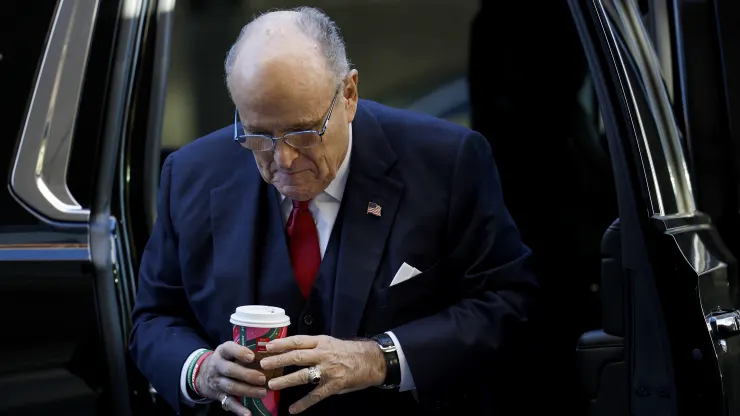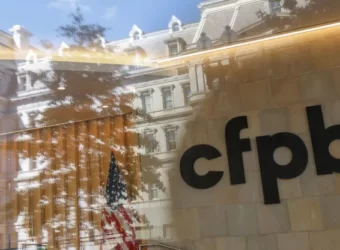Hi, I’m Rosa Barnard
a
Financial Analyst.
Professional Trader.
Portfolio Manager.
Unlock the expertise of a seasoned professional boasting 6+ years in Forex, stock markets, digital assets, financial consulting, and investment strategies. I excel in developing robust, tailored plans that sync with your financial objectives. Join me in navigating the markets for enduring, reliable profits. Embark on your financial success journey right here.

Tailored Financial Solutions
Portfolio Management:
Tailored investment strategies to optimize your portfolio, balancing risk and return to meet your financial goals and preferences.
Retirement Planning:
Comprehensive retirement solutions, guiding you through savings, investment, and withdrawal strategies for a secure and comfortable retirement.
Estate Planning:
Expert advice on preserving and transferring wealth, including wills, trusts, and other strategies to ensure your assets are managed according to your wishes.
Insurance Services:
Customized insurance solutions for life, health, and property, providing protection and peace of mind against unforeseen events and risks.
Tax Planning:
Strategic tax advice to minimize liabilities and maximize returns, ensuring efficient financial planning in compliance with the latest tax regulations.
Debt Management:
Guidance on effective debt reduction strategies, helping clients manage and eliminate debt to achieve financial freedom and improve overall financial health.
My Resume
Education
Bachelor's in Finance
University of PennsylvaniaI (2010 - 2014)Prestigious Ivy League institution providing a comprehensive finance program (2010-2014). Equips students with financial expertise, analytical skills, and a foundation for a successful finance career.
Financial Analyst Intern
Goldman Sachs (Summer 2013)Invaluable Financial Analyst Internship (Summer 2013) at global leader Goldman Sachs, offering hands-on experience and insights into dynamic financial markets.
Master of Business Administration
Harvard Business School (2018 - 2020)Harvard MBA (2018-2020) cultivates strategic thinking and leadership skills, preparing graduates for impactful roles in finance through an innovative curriculum and global network.
Chartered Financial Analyst (CFA)
CFA InstitutePost-MBA pursuit of CFA designation signifies commitment to professional excellence in investment analysis, portfolio management, and ethical standards.
Job Experience
Wealth Management Associate
MORGAN STANLEYAnalyze market trends, assess investment opportunities, and provide strategic insights to optimize portfolio performance for clients.
GROUP DIRECTOR
MORGAN STANLEYExecute trades, manage client portfolios, and ensure compliance with regulations to facilitate successful financial transactions and client satisfaction.
CLIENT SERVICE ASSOCIATE
MORGAN STANLEYExamines trends and patterns in various industries to forecast seasonal fluctuations, aiding businesses in strategic planning and decision-making.
INVESTMENT WEBSITE
PNC INVESTMENTSExamines trends and patterns in various industries to forecast seasonal fluctuations, aiding businesses in strategic planning and decision-making.
Completed Examination
State Securities Law Exam
Series 66 - Uniform Combined State Law ExaminationThe Series 66 exam is a financial licensing test administered in the United States, combining the Series 65 and Series 63 exams. It qualifies individuals as both investment adviser representatives and securities agents.
General Industry/Products Exam
SIE - Securities Industry Essentials ExaminationThe SIE (Securities Industry Essentials) Exam is an entry-level licensing exam administered by FINRA. It assesses fundamental securities industry knowledge, covering basic concepts and regulatory principles for prospective industry professionals.
General Industry/Products Exam
Series 7 - General Securities Representative ExaminationThe Series 7 exam, or General Securities Representative Examination, is a comprehensive licensing test administered by FINRA. It qualifies individuals to become registered representatives, allowing them to sell a wide range of securities products in the financial industry
Technical Skills
Financial Analysis
Market Analysis
Technical Analysis
Risk Management
Quantitative Skills
Soft Skills
Decision-Making
Discipline
Patience
Communication Skills:
Continuous Learning
Rosa Barnard
Throughout my six-year tenure in the investment market, I’ve demonstrated noteworthy excellence, accumulating a wealth of experience. My track record serves as evidence of my expertise, successfully navigating market complexities for substantial gains. I take pride in my strategic approach and insights, pivotal in the financial success of many.
If you seek a seasoned investment advisor, you’re in the right place. I invite the opportunity to converse, sharing insights and exploring avenues for your financial growth. Let’s connect and discuss how I can aid you in making informed, profitable investment decisions.

Testimonial

Sarah Thompson
CEO, TechInnovate Solutions.Strategic Visionary Partner
Rosa Barnard's transformative leadership and strategic investments have been the driving force behind our company's success. Her visionary guidance, coupled with unwavering support, has not only elevated our financial standing but also positioned us as industry leaders.

Mark Rodriguez
Co-Founder, InnovateTech LabsFinancial Growth Architect
InnovateTech Labs owes its rapid growth to Rosa Barnard's exceptional financial acumen and dedicated mentorship. Her strategic investments and commitment to our journey have been the catalysts for our exponential success.

Emily Chen
CFO, GreenSolutions Co.Innovation Catalyst Leader
GreenSolutions Co. owes its prosperity to Rosa Barnard's unparalleled financial expertise and relentless commitment to innovation. Her visionary leadership and strategic investments have not only shaped our financial landscape but also positioned us as market leaders.
My Blog

Former Trump lawyer Rudy Giuliani files for bankruptcy protection, lists more than $100 million in debts
Rudy Giuliani filed for Chapter 11 bankruptcy protection in New York on Thursday, citing debts that include a nearly $150 million recent civil judgment for defaming two Georgia election workers while serving as a lawyer for former President Donald Trump.
The filing by Giuliani came a day after a federal judge in Washington, D.C., ordered him to begin paying election workers Ruby Freeman and Shaye Moss monetary damages, and three days after they filed a new suit seeking to bar him from again defaming the mother and daughter.
The U.S. Bankruptcy Court in Manhattan filing legally pauses, for now, the $146 million defamation judgment against the former New York City mayor that resulted from a jury verdict last week.
Giuliani, while representing Trump in efforts to reverse his loss on the heels of the 2020 election, falsely accused Freeman and Moss of ballot fraud. The claims sparked death threats against them.
Their attorney, Michael Gottlieb, in a statement about Giuliani’s bankruptcy petition, said, “This maneuver is unsurprising, and it will not succeed in discharging Mr. Giuliani’s debt to Ruby Freeman and Shaye Moss.”
Giuliani’s filing estimates he has assets worth between $1 million and $10 million and estimated current liabilities of between $100 million and $500 million. A worksheet in the filing lists his current actual debts at $151.8 million.
While the defamation judgment is the lion’s share of that total, Giuliani also declared he has nearly $1 million in debt to the IRS and New York State Department of Taxation and Finance for unpaid taxes, and that he owes several million dollars in debts to various law firms.
Giuliani was sued in September by his former lawyer Robert Costello for $1.36 million in unpaid legal fees dating back to late 2019.
The list of nonsecured creditors in the new filing includes plaintiffs currently suing him, among them the Dominion and Smartmatic election machine companies, President Joe Biden’s son Hunter Biden, and former Giuliani employee Noelle Dunphy, who accuses him of sexual harassment and wage theft.
Filers use Chapter 11 of the Bankruptcy Code to reorganize their debts and come up with a plan to pay their creditors.
His bankruptcy lawyers in a statement Thursday said, “The filing should be a surprise to no one.”
“No person could have reasonably believed that Mayor Giuliani would be able to pay such a high punitive amount” from the defamation case, the attorneys, Heath Berger and Gary Fischoff said.
“Chapter 11 will afford Mayor Giuliani the opportunity and time to pursue an appeal, while providing transparency for his finances under the supervision of the bankruptcy court, to ensure all creditors are treated equally and fairly throughout the process,” the lawyers said.
In addition to serving two terms as New York mayor, Giuliani is a former Department of Justice official and former Manhattan U.S. Attorney.
Giuliani was in the final months of his mayoralty on Sept. 11, 2001, when a terror attack leveled the Twin Towers of the World Trade Center in lower Manhattan.
After being widely lauded for his leadership of the city on the heels of that attack, he made millions of dollars from consulting work and made a failed bid for the White House in 2008.
In recent years, Giuliani has been criticized, sued, and prosecuted for actions during his work as Trump’s lawyer. Since late 2020 he has made false claims that Trump lost to Biden only as a result of widespread ballot fraud.
Earlier this year, Giuliani, Trump, and 17 other people were charged in Georgia court with crimes related to an alleged conspiracy in their efforts to undo his defeat in that state in the 2020 election. Giuliani has pleaded not guilty in that case, as have Trump and most of the other defendants.
In July, the disciplinary board of the D.C. Bar Association recommended that Giuliani be stripped of his law license as a result of his false election fraud claims.
Giuliani’s law license in New York is suspended due to those claims.

Billions are on the line for lenders as White House finalizes credit card late fee cap
WASHINGTON — The Consumer Financial Protection Bureau’s ambitious rule proposal to crack down on credit card late fees, a $14.5 billion income stream for credit card companies, will potentially roll out in January, nearly a year after it was released.
Global corporations and small banks alike are pushing back against the impending rule finalization with some help from business-friendly lawmakers.
Rep. Andy Barr, R-Ky., called the proposal, which is projected to save consumers nearly $12 billion each year by capping late fees at as little as $8, “unclear at best and likely harmful” in the long term.
The chair of a House subcommittee on financial institutions and monetary policy called on the Government Accountability Office to study the rule’s potential impacts weeks before it is set to go into effect.
The CFPB would not confirm when the rule would be finalized, but interest groups say banks are not yet signaling a preemptive fee change akin to their response to a proposal to ban overdraft and insufficient fund fees.
Late fees, which can reach $41 under a legislative loophole allowing banks to charge unimpeded under a certain threshold, disproportionately affect poor Americans and those with low credit scores, the American Economic Liberties Project reported.
The U.S. Chamber of Commerce said fees “play an important role” in encouraging timely payments and avoiding added interest in its comments on the proposal.
“In contrast to the CFPB’s unfounded statements, late fees are not impermissible, so-called ‘junk fees’ that fail to serve any purpose,” the Chamber wrote, referencing the Biden administration’s overall initiative to shrink excessive surcharges. “Instead, they are heavily regulated by the CFPB, and the Federal Reserve before it.”
The Chamber submitted one of about 1,000 comments objecting to the proposal, out of a total of 57,000 comments, according to Accountable.US, a nonpartisan government watchdog group. The other 56,000 comments were in support of the caps.
The $8 fee is also not reflective of the costs of collections for credit unions, Greg Mesack, senior vice president of government affairs at the National Association of Federally-Insured Credit Unions, told CNBC. The organization spent $1.42 million in lobbying in Q1 of 2023, according to a Senate lobbying disclosure.
In its comment against the rule, the association argued that credit unions usually offer their members lower rates for services such as car loans and mortgages compared to big banks.
“We’re going to lose extreme amounts of money every time someone’s late,” Mesack said. The fee, he added, is not enough of a deterrent, “so more people are likely to be late.”
“A lot of credit unions will have to face the consequences of potentially limiting their credit card programs, which at that point it makes them not competitive with the big banks,” Mesack said.
CFPB consulted the National Credit Union Administration Board, along with the Comptroller of the Currency and the board of directors of the Federal Deposit Insurance Corporation, when constructing the proposal, according to a Notice of Proposed Rulemaking.
Late fees upward of $41 “are significantly higher than the pre-charge-off collection costs” cited by an unnamed credit union trade group, per the NPRM.
Instead, the $8 fee cap shows the CFPB “dug down, did their research, looked at industry data and came out with a number that they thought best reflected a bank’s ability to recover the cost associated with a late payment,” said Shahid Naeem, senior policy analyst at AELP.
“The fact that the CFPB has determined that $8 is sufficient to cover the costs and banks are charging $41, that’s significant,” said Christine Hines, a legislative director for the National Association of Consumer Advocates. “And it shows that somewhere, there’s conduct that needs to be curbed. Clearly.”
CFPB Director Rohit Chopra told senators last month that banks should support the proposal “if it’s not a core part of their profit model.”
Credit card companies spent a historic $37.04 million in 2022 on lobbying, according to records database Open Secrets. That year, total outstanding credit card debt surpassed $1 trillion for the first time since CFPB began collecting the data.
Companies have spent more than $30.7 million in lobbying so far in 2023.
“In a sense, these big financial firms, they have so much power, they have so much money and they’re waging a war on regulation,” Naeem told CNBC.

The S&P 500 is up about 23% year to date. Investors in that index should ‘set a strategy and stay invested,’ expert says
The S&P 500 index has been a winner in 2023.
The index on Wednesday closed above 4,700 for the first time since January 2022. Year to date, the index is up about 23%. Its average annual return is more than 10%.
That performance may now prompt some investors to question whether they should allocate more of their money to a fund that tracks the index.
Vanguard founder John Bogle famously argued long-term wealth may be built by owning a low-cost fund that tracks the stock market, such as the S&P 500.
Per its name, the S&P 500 includes around 500 stocks (503, to be exact) that fall in the large-cap equity category. The index was established in 1957 and was the first market-cap weighted index. That means each company’s weighting in the index is according to its market capitalization, or the total value of all outstanding shares.
The companies included in the S&P 500 is subject to change. This month, ride-hailing company Uber is among several names joining the index, replacing packaging company Sealed Air Corp.
How an S&P 500 ETF can benefit investors
For investors, passive funds that track the index are widely accessible.
“The biggest ETFs in the world are S&P 500 ETFs,” said Bryan Armour, director of passive strategies research for North America at Morningstar, a provider of investment research.
Investors may also choose to add S&P 500-focused mutual funds to their portfolios.
Exchange-traded funds are priced and can be traded throughout the day. Mutual fund orders are typically executed once a day, with all investors receiving the same price.
Another key difference between ETFs and mutual funds is cost.
“Our research has shown over the years that cost is one of the best predictors of future success,” Armour said. “And ETFs are a lot cheaper than mutual funds.”
Passive funds that track an index have the advantage of providing much lower costs than active strategies that are professionally managed. Over time, passive strategies have shown better returns.
“Among the better decisions people can make is starting with an index-based fund tracking the S&P 500 because it works,” said Todd Rosenbluth, head of research at VettaFi.
To be sure, 2023′s strong performance may not be indicative what is to come in 2024.
Will the S&P 500 rally last?
As the calendar turns to the new year, experts are placing bets on where the markets, including the S&P 500, will land.
A recent CNBC Fed Survey found money managers, strategists and economists surveyed expect a modest gain for the S&P 500 in 2024 of less than 2% to reach 4,696. Those experts on average also see the S&P rising above 5,000 for the first time, but not until 2025.
HSBC is expecting the index to reach 5,000 in 2024, with a chance it may go higher if there is no recession.
Raymond James’ S&P 500 target for 2024 is 4,850, due to a more conservative outlook than other firms when it comes to earnings, according to Chief Investment Officer Larry Adam.
That news is based on this year’s good news being already priced into the index, he said.
“Everybody’s feeling better that the Fed is no longer raising rates, they’re going to eventually be cutting rates, inflation is coming down,” Adam said.
In 2024, however, the firm’s forecast includes a mild recession or slower growth.
Much of the S&P 500′s strong turnout this year is due to the so-called “Magnificent Seven,” that includes Alphabet, Amazon, Apple, Meta, Microsoft, Nvidia and Tesla.
Raymond James expects those technology names (excluding Tesla, which it considers a consumer company) to continue to be a driver of the market in 2024, though not as strong as they were this year, Adam said.
“Technology, by far and away, is the one sector that consistently beats its earnings by a fairly substantial amount,” Adam said.
‘Set a strategy and stay invested’
Financial experts generally say investing in an S&P 500 index fund is a sound strategy — though it does leave room for diversification.
“It could prove an effective strategy if you hang on,” said Douglas Boneparth, a certified financial planner and president of Bone Fide Wealth in New York. Boneparth is also a member of the CNBC FA Council.
While the S&P 500 index offers exposure to the largest companies, it excludes small- or mid-size companies, as well as international companies, Boneparth noted.
While buying and holding exposure to the S&P 500 may prove wise over the long term, investors should resist reacting to market moves.
“The main thing would be to set a strategy and stay invested,” David Rea, president of Salem Investment Counselors, which is No. 27 on the 2023 CNBC Financial Advisor 100 list, said via email. “The market is up this year, but down last year. You cannot time the market, so pick funds or ETFs that suit or risk/return profile and stay invested!”
Ted Jenkin, a certified financial planner and CEO and founder of oXYGen Financial, a financial advisory and wealth management firm based in Atlanta, said sticking to low-cost investing and not timing the market may pay off. He is also a member of the CNBC FA Council.
“I don’t think individual investors or money managers can generally outperform the S&P 500,” Jenkin said.
Contact Me Here

Rosa Barnard
Professional TraderI navigate the financial markets, employing expertise in analysis and strategy to profit from fluctuations, using advanced tools and risk management.
Email: support@rosabarnard.com











